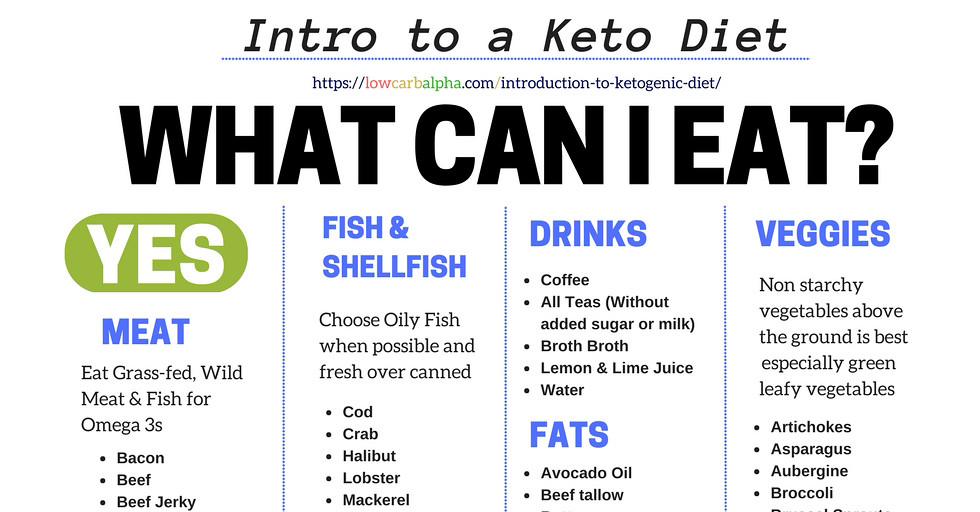Introduction
The keto diet is a popular diet that has been gaining popularity in recent years. It involves drastically reducing your carbohydrate intake and replacing it with fat. By doing so, your body enters a state of ketosis, which encourages your body to burn fat for energy instead of glucose. This can result in weight loss, improved blood sugar control, and other health benefits.
History of the Keto Diet
The keto diet was originally developed in the 1920s as a treatment for epilepsy. It was found that by reducing carbohydrate intake and increasing fat intake, the frequency and severity of seizures could be reduced. In recent years, the keto diet has gained popularity as a weight loss and general health diet.
How the Keto Diet Works
The keto diet works by putting your body into a state of ketosis. Normally, your body runs on glucose (sugar) for energy, which comes from the carbohydrates you eat. However, when you drastically reduce your carbohydrate intake, your body starts to burn fat for energy instead. This results in the production of ketones, which are used as fuel by your body.
Benefits of the Keto Diet
The keto diet has been shown to have several health benefits, including weight loss, improved blood sugar control, and improved cholesterol levels. It may also help reduce the risk of certain diseases, such as Alzheimer’s disease and some types of cancer.
Consultation with a Doctor
Before starting the keto diet, it’s important to consult with your doctor. Starting a new diet can have an impact on your health, so ensure that you’re healthy enough to start this diet. Your doctor will be able to advise you on any potential risks and help you determine if this is the right diet for you.
Medical Conditions and Medications
Certain medical conditions and medications may make the keto diet unsafe or ineffective. For example, if you have liver or pancreatic disease, or if you are taking medication for diabetes, you may not be able to follow the keto diet safely. Your doctor will be able to advise you on any potential risks and help you determine if this is the right diet for you.
Monitoring Health While on the Keto Diet
Your doctor may also recommend regular monitoring of your health while on the keto diet. This may include blood tests to monitor your cholesterol levels and other health markers, as well as regular check-ins to ensure that you’re feeling well.
Understanding Macros
In order to follow the keto diet properly, it’s important to understand macronutrients, or macros, which are the three types of nutrients that our bodies need in large quantities: carbohydrates, protein, and fat. On the keto diet, you will want to consume more fats than proteins and carbohydrates combined. Typically, the ratio of macronutrients on this diet is 70% fat, 25% protein, and 5% carbs.
Calculating Macros
To determine your daily macro intake, you can use an online calculator or work with a nutritionist. You’ll want to track your intake of fat, protein, and carbohydrates to ensure that you’re staying within the recommended ratios.
Choosing Healthy Fats
While the keto diet is high in fat, it’s important to choose healthy fats. Focus on foods like avocados, nuts and seeds, fatty fish, and oils like coconut oil and olive oil. These foods provide healthy fats that can help improve your cholesterol levels and overall health.
Grocery Shopping
Once you understand the macronutrient ratios, you can begin grocery shopping for the keto diet. Focus on high-fat foods like avocados, nuts and seeds, fatty meats, and oils like coconut oil and olive oil. You’ll also want to choose low-carbohydrate vegetables like broccoli, spinach, and cauliflower.
Meal Planning and Prepping
Meal planning and prepping are key to success on the keto diet. Start by planning out your meals for the week, ensuring that they are high in fat and low in carbs. You can find many keto-friendly recipes online that will help you stay on track. Once you have your meal plan, spend a few hours prepping your meals for the week. This will save you time and make it easier to stick to your diet.
Shopping Tips
When shopping for the keto diet, focus on whole, unprocessed foods. Avoid processed foods that are high in sugar and carbohydrates. Look for high-quality meats, fresh vegetables, and healthy fats like avocados and nuts.
Tracking Your Macros
To ensure that you’re following the keto diet properly, you’ll need to track your macros. There are many apps and websites available that will help you track your daily intake of fat, protein, and carbohydrates.
Tracking Tips
When tracking your macros, be sure to weigh and measure your food to ensure accuracy. Keep track of your intake throughout the day to ensure that you’re staying within your recommended ratios. If you’re eating out, look up nutrition information beforehand to ensure that you’re making keto-friendly choices.
Staying Hydrated
Water is essential on the keto diet. It’s important to drink at least 8 cups of water per day, as this will help keep you hydrated and prevent constipation.
Other Fluids to Consider
In addition to water, you can also drink other fluids like herbal tea and bone broth. These fluids can help add variety to your diet and provide additional nutrients.
Supplements
Some people on the keto diet choose to take supplements to help with energy and nutrient intake. Some common supplements include magnesium, potassium, and omega-3 fatty acids.
Supplement Considerations
Before taking any supplements, it’s important to consult with your doctor. Some supplements may interact with medications or be unsafe for certain medical conditions. Your doctor can advise you on which supplements are safe and effective for you.
Exercise
Exercise is important on any diet, including the keto diet. Incorporate regular exercise into your routine to help burn fat and maintain muscle mass.
Exercise Recommendations
Aim for at least 30 minutes of moderate exercise per day, such as brisk walking or cycling. You can also incorporate strength training exercises to help build muscle mass.
Potential Side Effects
The keto diet can have some potential side effects, including headaches, fatigue, and constipation. These side effects typically go away within a few weeks as your body adjusts to the new diet.
Other Potential Side Effects
Other potential side effects of the keto diet include bad breath, increased thirst, and muscle cramps. If you experience any of these side effects, talk to your doctor.
Conclusion
The keto diet can be a highly effective way to lose weight and improve overall health. By understanding macros, grocery shopping for high-fat foods, meal planning, tracking macros, staying hydrated, taking supplements, exercising regularly, and being aware of potential side effects, you can start the keto diet with confidence. As always, consult with your doctor before beginning any new diet.
What do you eat the first week of keto?
The purpose of the keto diet is to reduce carbohydrate intake and promote fat burning in the body. In the first week of starting the diet, it is recommended to consume meat, vegetables, cheese, nuts, and other dairy products while limiting fruit intake to twice a day.
What happens on the first 3 days of keto?
Starting a keto diet may feel great on the first day, but after 2-3 days, you may experience mental and physical fogginess. This can cause unproductive work and long periods of staring at a wall, feeling half-drunk.
What does keto breakfast look like?
For those following a keto diet, eggs are an excellent food option that can provide fiber, vitamins, and minerals. To make a low-carb omelet packed with nutrients, consider incorporating vegetables such as onions, mushrooms, garlic, spinach, bell pepper, and squash.
What’s the hardest day of keto?
A helpful suggestion is to start the keto diet on a Thursday, as the third and fourth days of the transition are typically the most challenging. This advice was given on July 28, 2021.
How much weight can I lose in 1 month on keto?
If someone follows a ketogenic diet for a month and maintains a calorie deficit, they could expect to lose 10 pounds or more in that time according to Manning, a weight loss expert. This is achievable as long as the person consistently sticks to the diet plan.
How much weight can I lose in 2 weeks on keto?
The keto diet alters your metabolism to use ketone bodies instead of glucose for energy production, resulting in possible weight loss of up to ten pounds in the first few weeks. Subsequently, you may lose one to two pounds per week.





